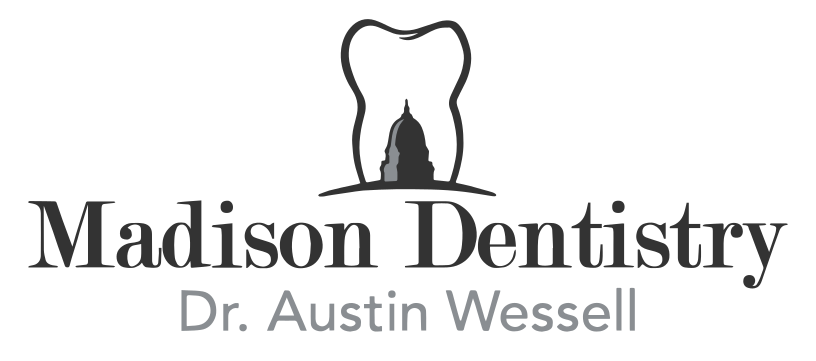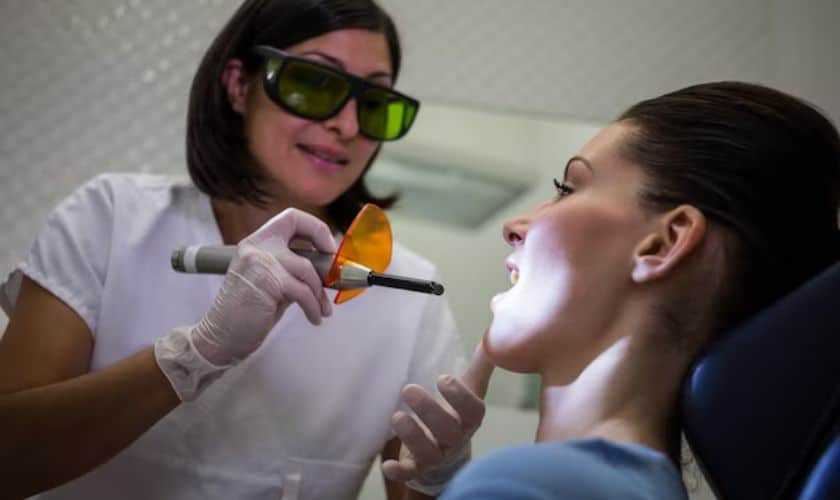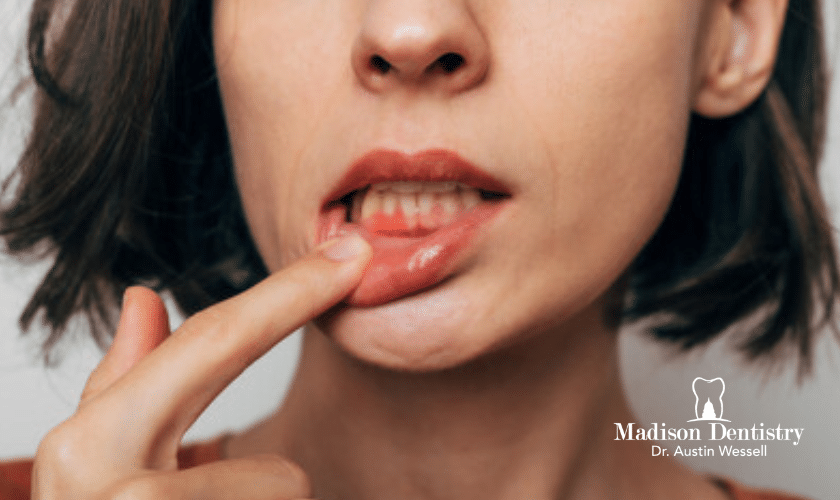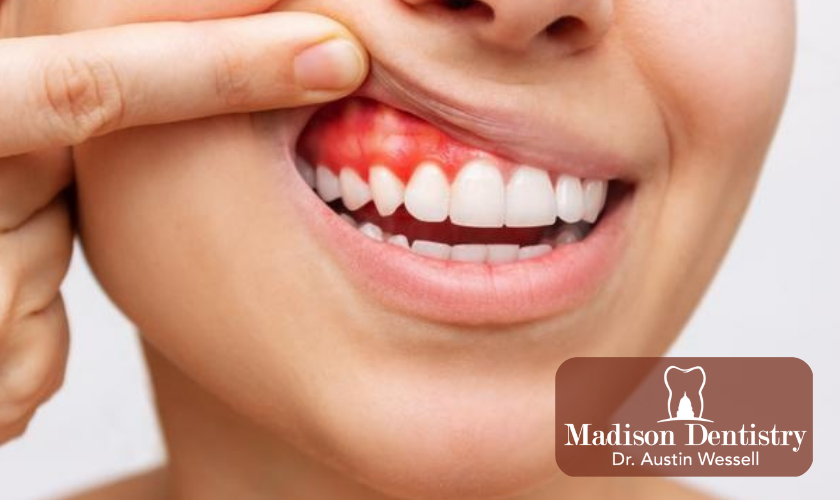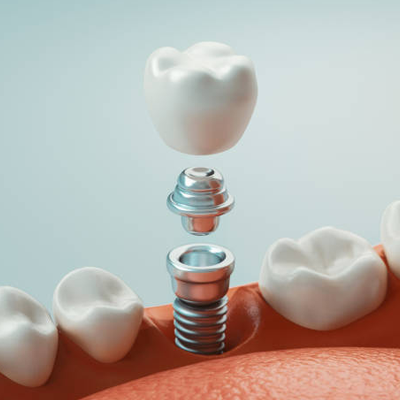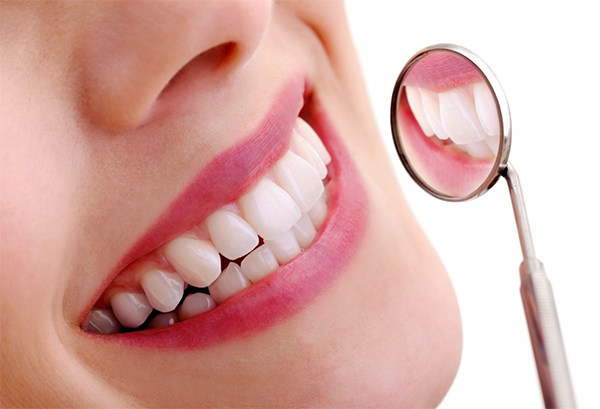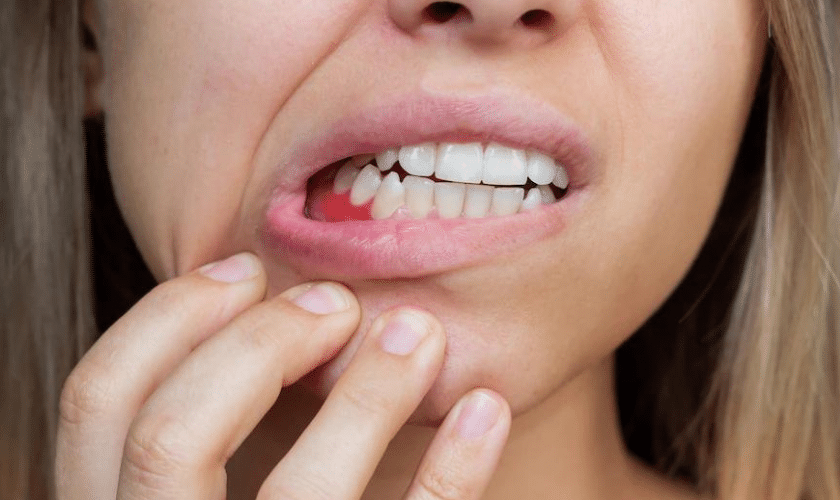
Are you experiencing bleeding gums when brushing or flossing? Do you notice bad breath that just won’t go away? These are just a few of the warning signs and symptoms of periodontal disease. This common but serious condition affects millions of people worldwide, yet many don’t realize they have it until it’s too late. In this blog post, we’ll explore what causes periodontal disease, its warning signs and symptoms, and how to seek treatment before it’s too late. Don’t wait until your oral health is at risk – read on to learn more about taking care of your teeth and gums!
What Is Periodontal Disease And What Causes It?
Periodontal disease, also known as gum disease, is a common oral health problem that affects the tissues and structures surrounding the teeth. It is caused by an infection of bacteria in the gums and bones that support the teeth.
The primary cause of periodontal disease is poor oral hygiene practices such as infrequent brushing or flossing. When plaque builds up along the gumline, it hardens into tartar which can irritate and inflame the gums leading to gum disease.
Other risk factors include smoking, genetic predisposition, hormonal changes (such as during pregnancy), certain medications, and medical conditions such as diabetes.
If left untreated, periodontal disease can progress to severe stages where tooth loss may occur. Therefore it’s important to be aware of warning signs and symptoms so you can seek treatment early on.
It’s recommended to maintain good oral hygiene practices such as regular brushing twice per day for two minutes each time with fluoride toothpaste. Additionally, flossing daily helps remove food particles from between your teeth that could potentially lead to gum inflammation.
The Warning Signs And Symptoms Of Periodontal Disease
Periodontal disease is a serious gum infection that can cause damage to the soft tissue and bone supporting your teeth. One of the challenges with periodontal disease is that it often develops silently, without any obvious symptoms until it has progressed significantly. Therefore, recognizing early warning signs and symptoms becomes critical in preventing further damage.
Some common warning signs of periodontal disease include redness or swelling in the gums, tenderness or pain when brushing or flossing, bleeding gums while eating or brushing teeth, persistent bad breath, and loose teeth which may indicate loss of surrounding gum tissue and bone structure.
If you experience any of these symptoms for over two weeks straight then you should immediately schedule an appointment with your dentist to have a thorough examination done. Your dentist will examine your mouth for plaque buildup on teeth and discuss treatment options depending on how severe the condition has become.
It’s important to note that regular dental checkups are essential in catching the early stages of periodontitis since this could prevent more invasive treatments later down the line. If caught early enough through regular dental cleanings and proper oral hygiene practices at home then most cases can be treated effectively before significant damages occur.
If you suspect any potential sign of gum infection do not hesitate to consult a professional immediately as ignoring such infections would only worsen its degree leading to potentially life-changing consequences.
How To Treat Periodontal Disease
Periodontal disease is a serious condition that requires prompt treatment to prevent further damage to your teeth and gums. If you suspect you have periodontal disease, it’s important to seek treatment as soon as possible. The first step in treating this condition is to schedule an appointment with your dentist or periodontist.
Your dental professional will evaluate the severity of your gum disease and recommend an appropriate course of treatment. In mild cases, regular cleanings and improved oral hygiene habits may be enough to reverse the damage done by gingivitis.
In more severe cases, scaling and root planing procedures may be necessary to remove plaque buildup below the gumline. Antibiotics or antimicrobial treatments may also be prescribed to help control bacterial infections.
In some cases, surgery may be required if the damage caused by periodontal disease has progressed too far. Surgical options can include flap surgery or bone grafts depending on the extent of gum recession and bone loss.
Regardless of the severity of your periodontal disease, early diagnosis and prompt treatment are critical for preventing further damage. Be sure to schedule regular dental check-ups and maintain good oral hygiene habits at home for optimal oral health!
Periodontal Disease Treatment Options
When it comes to treating periodontal disease, there are several options available. The type of treatment that you receive will depend on the severity of your condition.
If caught early, periodontal disease can often be treated with professional cleaning and improved oral hygiene habits at home. This may include regular brushing and flossing as well as using an antiseptic mouthwash.
If the disease has progressed to a more advanced stage, scaling and root planning may be necessary. This is a deep cleaning procedure that removes tartar buildup from below the gumline and smooths out rough spots on tooth roots to help prevent future bacterial growth.
In some cases, surgical intervention may be required. Options include flap surgery or bone grafts to regenerate lost tissue or dental implants if teeth have been lost due to severe periodontitis.
It’s important to remember that while these treatments can help manage and improve symptoms of periodontal disease, proper oral hygiene habits must continue to prevent further damage from occurring.
Bottom Line
Taking care of your oral health is crucial for maintaining overall well-being. Periodontal disease can cause severe damage to your gums, teeth, and bone structure if left untreated. To prevent the progression of this disease, it’s essential to identify the warning signs and symptoms early on and seek treatment promptly.
It’s best to maintain good oral hygiene habits such as brushing twice a day, flossing regularly, and visiting your dentist at least twice a year. Don’t hesitate to ask questions or express concerns during these visits; your dentist is there to help you.
If you suspect that you may have periodontal disease or are experiencing any of the warning signs mentioned above, schedule an appointment with a dental professional immediately. They can evaluate the severity of the condition and recommend appropriate treatment options.
Remember that treating periodontal disease is possible with proper care and attention. By taking proactive steps towards preventing it from developing further or reversing its effects in its early stages, you can ensure long-lasting healthy teeth and gums for years to come.
